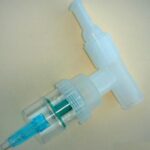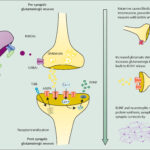Major Depressive Disorder (MDD), commonly known as clinical depression, is a serious mental health condition that affects millions worldwide. It is characterized by persistent sadness, loss of interest in daily activities, and cognitive and physical impairments that interfere with a person’s ability to function.

Symptoms of Major Depressive Disorder
MDD presents a variety of symptoms that can impact emotional, cognitive, and physical health. These include:
Emotional Symptoms
- Persistent sadness or low mood
- Feelings of hopelessness and worthlessness
- Irritability or frustration
- Loss of interest in hobbies and social activities
Cognitive Symptoms
- Difficulty concentrating and making decisions
- Memory impairment
- Suicidal thoughts or self-harm tendencies
Physical Symptoms
- Fatigue or loss of energy
- Changes in appetite and weight
- Sleep disturbances (insomnia or hypersomnia)
- Aches and pains without a clear physical cause
Causes and Risk Factors
MDD is a multifactorial disorder influenced by genetic, biological, environmental, and psychological factors.
Genetic and Biological Factors
- Family history of depression
- Neurotransmitter imbalances (serotonin, dopamine, norepinephrine)
- Hormonal changes, including thyroid disorders
Environmental and Psychological Factors
- Chronic stress and traumatic events
- Substance abuse
- Social isolation and lack of support
- Childhood abuse or neglect
Diagnosis of MDD
Diagnosing MDD requires a thorough clinical evaluation based on criteria set by the Diagnostic and Statistical Manual of Mental Disorders (DSM-5). Healthcare providers conduct:
- Psychiatric assessment: Reviewing symptoms, medical history, and family background
- Physical examination: Identifying underlying health issues contributing to depression
- Psychological questionnaires: Standardized tests like the PHQ-9 for assessing severity
Treatment Options
Effective treatment for MDD often involves a combination of medication, therapy, and lifestyle modifications.
Medications
- Selective Serotonin Reuptake Inhibitors (SSRIs) (e.g., fluoxetine, sertraline)
- Serotonin-Norepinephrine Reuptake Inhibitors (SNRIs) (e.g., venlafaxine, duloxetine)
- Tricyclic Antidepressants (TCAs) (e.g., amitriptyline, nortriptyline)
- Monoamine Oxidase Inhibitors (MAOIs) (e.g., phenelzine, tranylcypromine)
- Atypical Antidepressants (e.g., bupropion, mirtazapine)
Psychotherapy
- Cognitive Behavioral Therapy (CBT): Helps reframe negative thought patterns
- Interpersonal Therapy (IPT): Focuses on improving social relationships
- Psychodynamic Therapy: Addresses unconscious conflicts influencing mood
Lifestyle and Supportive Interventions
- Regular Exercise: Improves mood and reduces stress
- Healthy Diet: Nutrient-rich foods aid brain function
- Social Support: Engaging with loved ones can provide emotional relief
- Mindfulness and Meditation: Reduce stress and enhance emotional well-being
Complications of Untreated MDD
If left untreated, MDD can lead to severe consequences, including:
- Increased risk of suicide
- Substance abuse disorders
- Cardiovascular diseases
- Impaired work and social functioning
Prognosis and Outlook
With proper treatment, many individuals with MDD experience significant improvement in symptoms. However, ongoing management is crucial to prevent relapse.
Major Depressive Disorder is a severe but treatable mental health condition. Early diagnosis, appropriate treatment, and support systems play a vital role in recovery. If you or someone you know is struggling with depression, seek professional help immediately.

